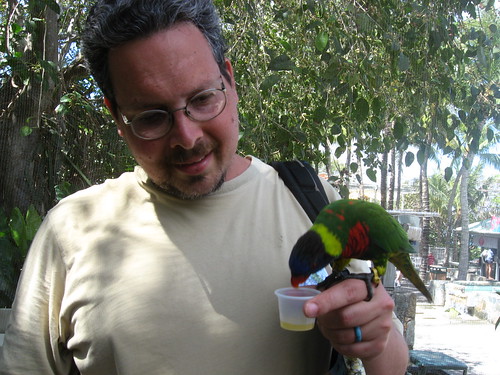🦋 A Brief DiÅ¿courÅ¿e of the Sepulchrall Urnes Lately Found in N O R F O L K.
The ending of "Tlön, Uqbar, Orbis Tertius" finds Borges sitting in the hotel in Adrogué where his family spent their summers during his childhood, working on revisions to "an uncertain Quevedian translation... of Browne's Urn Burial."  (What is "Quevedian"? -- It must mean "in the manner of Quevedo" -- I have no idea what this would mean in this context...✱) (What is "Quevedian"? -- It must mean "in the manner of Quevedo" -- I have no idea what this would mean in this context...✱) Sir Thomas Browne's Urn Burial is a 17th-Century discourse on an archæological discovery, a Roman grave site in Norfolk. The text of Hydriotaphia is online at the University of Chicago's Sir Thomas Browne page, with this amusing note from the maintainer of the site: Hydriotaphia and the Garden of Cyrus were published together in 1658, on which edition this web edition is based. They form a work that is somewhat difficult but rewarding to read. The number of critics who have a rock-solid grasp of the entire work can be counted on the fingers of one foot, so there's an open field out there for those inclined towards such work. Most critics read Hydriotaphia and comment on it as though they had in fact finished both sides. Among those whose comments are more interesting are Carlyle, Lytton Strachey, and, somewhat surprisingly, Virginia Woolf. Among those whose work seems to be based on something else the stand-out is Gosse✽, whose commentary is so unrelated to the text putatively in front of him that it becomes a case-study in itself.
 William Hamilton's address "Sir Thomas Browne, Jorge Luis Borges y Yo" is reprinted in the Atlantic of June 2003. Borges refers to his translation of Browne's Urne Buriall in this interview. It seems like he did actually translate it or part of it in Quevedian Spanish, I am looking for more info about this. Christopher Johnson has an essay in Translation and Literature called "Intertextuality and Translation: Borges, Browne, and Quevedo".
✱Possibly "Quevedian" just means the language of the translation is archaic, 17th-Century Spanish. -- More info from John and Rick in comments. ✽And Gosse père wrote Omphalos, which prefigures Russell's idea that the world was created just minutes ago with people's memories created intact, which is referenced in a footnote to "Tlön, Uqbar, Orbis Tertius" -- bringing us full circle.
posted evening of Tuesday, June first, 2010
➳ More posts about Ficciones
➳ More posts about Short Stories
➳ More posts about Jorge Luis Borges
➳ More posts about Readings

Quevedo wrote an extremely learned, stylistically virtuoso Spanish which violated the normal patterns of the language. It might be a little comparable to Miltonic English, but Quevedo normally wrote prose. He has a very pungent way of expressing himself, but I am not able to perceive the unique qualities of his writing, partly because my Spanish baseline isn't secure enough, much less my Latin, Greek, or Hebrew. (What I just read is mostly from secondary sources.)
Quevedian would be an appropriate kind of Spanish for Browne, I would think.
Borges was also accused of using sentence patterns unnatural to Spanish, as I remember.
posted evening of June first, 2010 by John Emerson

Ah -- thanks, that makes sense.
posted evening of June first, 2010 by Jeremy

I generally agree with the previous comment, Borges is probably referring to a classical, antiquated style--ambiguously demeaning it, perhaps, as artificial; Borges is known for the the introduction of clarity and novelty to contemporary literary Spanish). But, on the other hand, Quevedo is the side of clarity in the Spanish Siglo de Oro. Gongora is the obscure, convoluted, complex, virtuoso side--culteranismo it is called (you can cf. Luis de Gongora y Argote wikipedia entry). So, exactly: Quevedian would be a good style for Browne from Borges perspective.
Also, I wonder about the use of "uncertain" in the translation. It reads like "of uncertain origin" to me (sorry if I'm wrong), while the original ("una indecisa traducción quevediana") seems to mean something more like insecure, unsure, dubious, implying amateurish, poorly made, tentative--this being a typical Borgesian hypallage (the author's indecision is adjudicated to the translation). The whole thing is a characteristically self-deprecating comment.
posted evening of June first, 2010 by Rick

That sounds right to me, and "insecure" might be a better take on it, though I think "uncertain" works too. The parenthetical clause I elided -- "(which I do not mean to publish)" -- clarifies the meaning. Thanks for the info about Quevedo and Góngora; the only Spanish writer I know at all from this period is Cervantes, this looks like an interesting direction to branch out in at some point...
posted morning of June second, 2010 by Jeremy

Sir T.B.'s 1658 Urn-Burial is a Discourse upon much more than an archaeological discovery and merely a spring-board for greater themes! On death, mortality, the accidental and the unknowingness of the human condition; Urn-Burial is also only one half of the entire hermetic vision, its diptych companion being 'The Garden of Cyrus'.
There's a plethora of interesting connections between Borges and Browne, this one being the most obvious. Browne was of course a favourite source of reading and inspiration to Borges throughout his literary career.
posted morning of June 6th, 2010 by kevin faulkner
|

